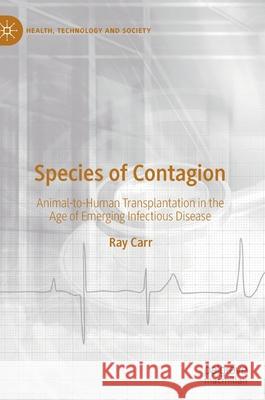Species of Contagion: Animal-To-Human Transplantation in the Age of Emerging Infectious Disease » książka
topmenu
Species of Contagion: Animal-To-Human Transplantation in the Age of Emerging Infectious Disease
ISBN-13: 9789811682889 / Angielski / Twarda / 2022 / 236 str.
Species of Contagion: Animal-To-Human Transplantation in the Age of Emerging Infectious Disease
ISBN-13: 9789811682889 / Angielski / Twarda / 2022 / 236 str.
cena 403,47
(netto: 384,26 VAT: 5%)
Najniższa cena z 30 dni: 385,52
(netto: 384,26 VAT: 5%)
Najniższa cena z 30 dni: 385,52
Termin realizacji zamówienia:
ok. 22 dni roboczych
Bez gwarancji dostawy przed świętami
ok. 22 dni roboczych
Bez gwarancji dostawy przed świętami
Darmowa dostawa!
Kategorie:
Kategorie BISAC:
Wydawca:
Springer Verlag, Singapore
Seria wydawnicza:
Język:
Angielski
ISBN-13:
9789811682889
Rok wydania:
2022
Ilość stron:
236
Waga:
0.43 kg
Wymiary:
21.01 x 14.81 x 1.42
Oprawa:
Twarda
Wolumenów:
01
Dodatkowe informacje:
Wydanie ilustrowane











